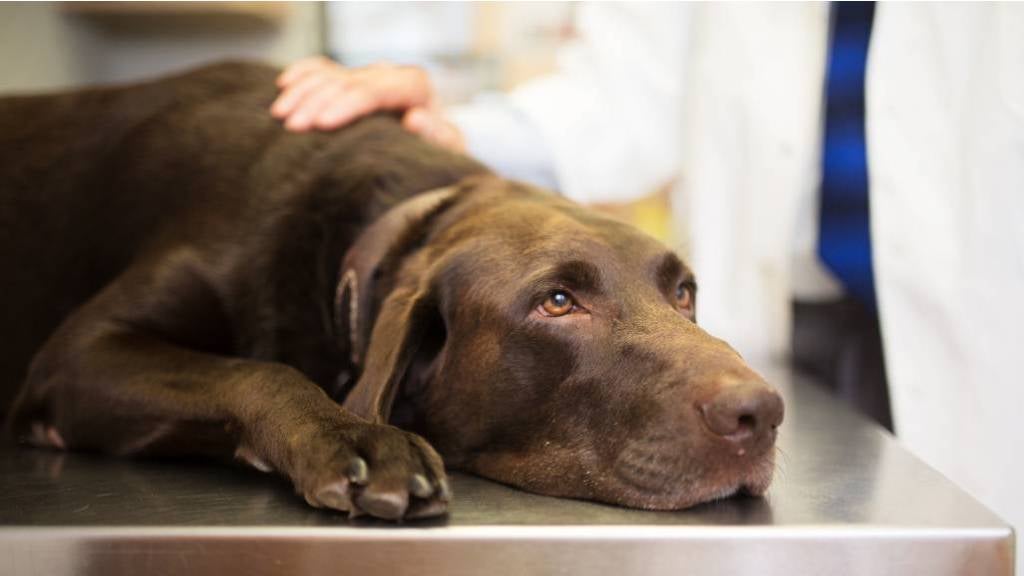What is canine cough and how to prevent it

Canine cough, or infectious tracheobronchitis, is something every dog owner should be aware of, especially if your dog spends lots of time around other dogs, such as in boarding facilities, dog parks, or training classes.
It’s highly contagious and spreads easily among pups, much like a cold would among humans. With the expert help of Dr Rosalind Holland (BVSc, MVM, MANZCVS), we’ll explain canine cough, the signs to look out for, and, most importantly, how to help prevent it from affecting your beloved pet.
What is canine cough?
Canine cough, also known as infectious tracheobronchitis, is a highly contagious respiratory disease in dogs. Dr Holland describes it as a harsh cough that can sound like something is stuck in your dog's throat. It's not caused by a single virus or bacteria; multiple infectious agents can contribute. This makes it a bit tricky because different pathogens might be involved, leading to varying severities of the disease.
Mild cases usually involve bouts of coughing for a week or two, but more serious cases can lead to pneumonia. Canine cough is typically treatable with the right medications and plenty of rest.
Can all dogs get canine cough?
Canine cough doesn't discriminate. Whether you have a young, energetic pup or an older, more relaxed companion, they can all potentially contract the disease.
However, the severity often depends on the dog's overall health and immune system. Dr Holland points out that stressed, young, or debilitated dogs are more likely to suffer from severe symptoms.
Causes and symptoms of canine cough
The primary way canine cough spreads is through the air. When an infected dog coughs, it releases aerosolised infectious agents that can be inhaled by other dogs. Shared objects like food bowls and toys can also be culprits.
The symptoms can vary. Common signs of canine cough in dogs may include:
- A harsh, persistent cough that sounds like a honk
- Runny nose
- Sneezing
- Lethargy
- Loss of appetite
- Low fever
It may seem like the affected pup patient has something stuck in their throat and could sound like gagging or retching.
If you notice these symptoms, it's always best to consult a vet. According to Dr Holland, canine cough can sometimes require specific treatment, especially if it progresses to pneumonia.
Risks and prevention
Canine cough, while often mild, can become a significant issue if not managed properly. The risks are higher in environments where dogs are in close quarters, such as boarding kennels, doggy daycares, grooming facilities and even during social walks in the park.
Vaccination is key
One of the most effective ways to prevent canine cough is through vaccination. Dr Holland highlights that vaccinations against many infectious agents (like canine adenovirus type 2, canine parainfluenza virus, and canine distemper) are included in basic puppy shots. There's also an additional vaccine for Bordetella bronchiseptica, which is often required for dogs staying in boarding facilities.
Additional preventive measures
Besides vaccination, other preventive measures include:
- Good ventilation: Ensure your dog's living space is well-ventilated.
- Stress reduction: Minimise stress to boost your dog's immunity.
- Avoid irritants: Keep your dog away from cigarette smoke, dust, and sudden temperature changes.
Dispelling common myths of canine cough
Myth 1: Only kennelled dogs get canine cough
Canine cough can also be known as ‘kennel cough’. While this nickname suggests dogs in kennels are most at risk, any dog can contract canine cough. It's more about the exposure to infected dogs than the location. Social settings, parks, and doggy daycares can be hotspots.
Myth 2: canine cough is always severe
Canine cough can range from mild to severe. Many cases are mild and resolve without specific treatment. However, as Dr Holland notes, the severity depends on the infectious agents involved and the dog's immunity.
Myth 3: Vaccinated dogs never get canine cough
Vaccination significantly reduces the risk, but it's not a 100% guarantee. Vaccinated dogs can still contract a milder form of the disease. Think of it like the flu shot for humans – it reduces the severity if your pet does catch it.
Tips for managing and preventing canine cough
Preventing canine cough involves a mix of proactive and reactive measures. Here are some tips from Dr Holland to keep your furry friend safe and healthy:
- Vaccinate early and regularly: Ensure your dog is up-to-date with their vaccinations. Puppies should complete their initial shots (before meeting unknown dogs or walking in public places), followed by boosters, as recommended by your vet.
- Maintain a clean environment: Keep your dog's living area clean and well-ventilated. Regularly wash their bedding, toys, and food bowls to minimise the risk of infection.
- Monitor and isolate: If your dog shows symptoms of canine cough, isolate them from other dogs to prevent the spread. Monitor their health and consult a vet for advice.
- Avoid stress: Stress can weaken your dog's immune system. Provide a calm, stress-free environment and avoid sudden changes in routine. If you're going on holiday, consider whether boarding kennels are a good choice or if a pet sitter might be better.
- Consult your vet: Regular vet check-ups are essential. If your dog starts coughing or showing other symptoms, don't hesitate to seek professional advice. Early intervention can make a significant difference.
Canine cough is a common but manageable condition for dogs. By understanding its causes, symptoms, and prevention methods, you can help ensure your canine whānau members stay in tip-top shape.
Remember, vaccination is your best defence, but maintaining a clean, stress-free environment is equally important. Keep your beloved pet protected with SPCA Pet Insurance, which could have you covered for accidents and illnesses.
18 Oct 2024
All information is general and not intended as a substitute for professional advice.
